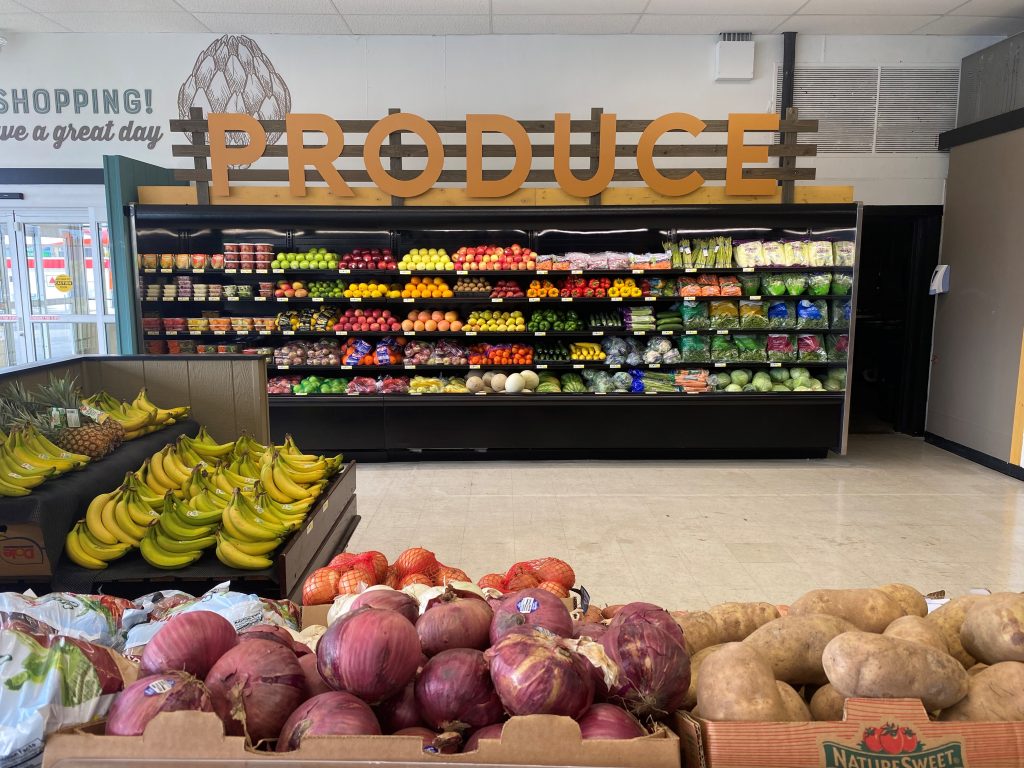Wisconsin Sues Trump Administration For Food Assistance Cuts
Wisconsin joins two dozen states arguing federal government is violating the law.

Sentry Foods, 6350 W. Silver Spring Dr. Photo courtesy of Paul Williams.
The State of Wisconsin is suing President Donald Trump‘s administration for allegedly refusing to fund food assistance, despite having the requisite funds and legal authority.
Attorney General Josh Kaul joined a lawsuit filed in the U.S. District Court in Massachussets against the U.S. Department of Agriculture (USDA) and Secretary Brooke Rollins. The suit also names Russell Vought, director of the Office of Management and Budget, and the reported mastermind of the Trump administration’s plans to slash government programs and staffing.
The suit is asking a federal judge to order the federal government to make payments through SNAP, alleging the government is violating federal law set forth in the Administrative Procedure Act.
“Across various previous federal government shutdowns, SNAP benefits have never been interrupted by a lapse in appropriations,” according to the complaint filed by plaintiffs, which includes 24 states and the District of Columbia.
The federal government shutdown began on Oct. 1, and largely hinges on a handful of Senate Democrats refusing to approve a Republican appropriations bill that cuts funding for health insurance subsidies used by more than 22 million Americans.
The assistance provided through SNAP is considered a federal entitlement, which means the government must make payments. Typically, SNAP is funded through appropriations bills, like the one that has stalled in the U.S. Senate causing the government shutdown. Congress created the program that would eventually be called SNAP when it passed the Food Stamp Act in 1964. The legislation was part of President Lyndon B. Johnson‘s Great Society Program, which expanded civil rights and social welfare.
In Wisconsin, the SNAP-funded program is called FoodShare and it is administered by the Wisconsin Department of Health Services (DHS). FoodShare pays out, on average, $136 per person per month and $161 per household per month to help low-income individuals and families purchase groceries, according to the complaint. To be eligible for SNAP, a four-person household cannot have a net-annual income above the federal poverty line of $31,000.
Each month, an average of approximately 689,000 Wisconsin residents receive FoodShare benefits.
“There’s federal funding the Trump Administration has available to help ensure millions of Americans, including nearly 700,000 Wisconsinites, continue to have access to basic foods and groceries, but they’re refusing to use it—we cannot accept that,” Gov. Tony Evers said in a statement Tuesday.
There is approximately $5.25 billion in a contingency account for SNAP, which the federal government is not using to make payments in November, according to the plaintiffs. The funds were set aside in the event of a lapse in funding, like the one caused by the shutdown.
Instead of releasing these funds, USDA is directing states to withhold supplemental nutrition payments. Under federal law, a state must comply with the directive or risk losing future funding. The agency has, however, repurposed other revenues to provide aid to farmers and to maintain WIC, a smaller supplemental nutrition program for women, infants and children.
“Yet, inexplicably and arbitrarily, Defendants have not invoked that same authority to fund SNAP benefits for millions of Americans, including veterans, hard-working low-income families, and some of our most vulnerable populations like seniors and children,” the suit argues.
The loss of SNAP will force low-income families to reduce their grocery budgets or weigh their grocery bills against other costs of living, like rent or utilities. Food insecurity and attending malnutrition has a deleterious affect on child development and education. Plaintiffs are suing the federal government, in part for harm to their respective educational systems. The health and welfare of adults is similarly affected, with adult SNAP recipients having fewer medical costs than low-income non-recipients, according to the complaint.
“Shutting off SNAP benefits will cause deterioration of public health and wellbeing,” the plaintiffs argue. “Ultimately, the States will bear costs associated with many of these harms.”
Legislation Link - Urban Milwaukee members see direct links to legislation mentioned in this article. Join today
If you think stories like this are important, become a member of Urban Milwaukee and help support real, independent journalism. Plus you get some cool added benefits.






















Senator Sanders tweeted,
“This year, Trump’s Big Beautiful Bill gave:
Google an $18 billion tax break.
Amazon a $16 billion tax break.
Microsoft a $12 billion tax break.
Facebook an $11 billion tax break.
Now, they’re writing checks to Trump for his $300 million ballroom. Gee, I wonder why?”
And now President Cankles Comb Over is about to withhold food assistance for 270,000 children, and 110,000 individuals
over the age of 60 in Wisconsin. Cruelty must be the point with this guy.